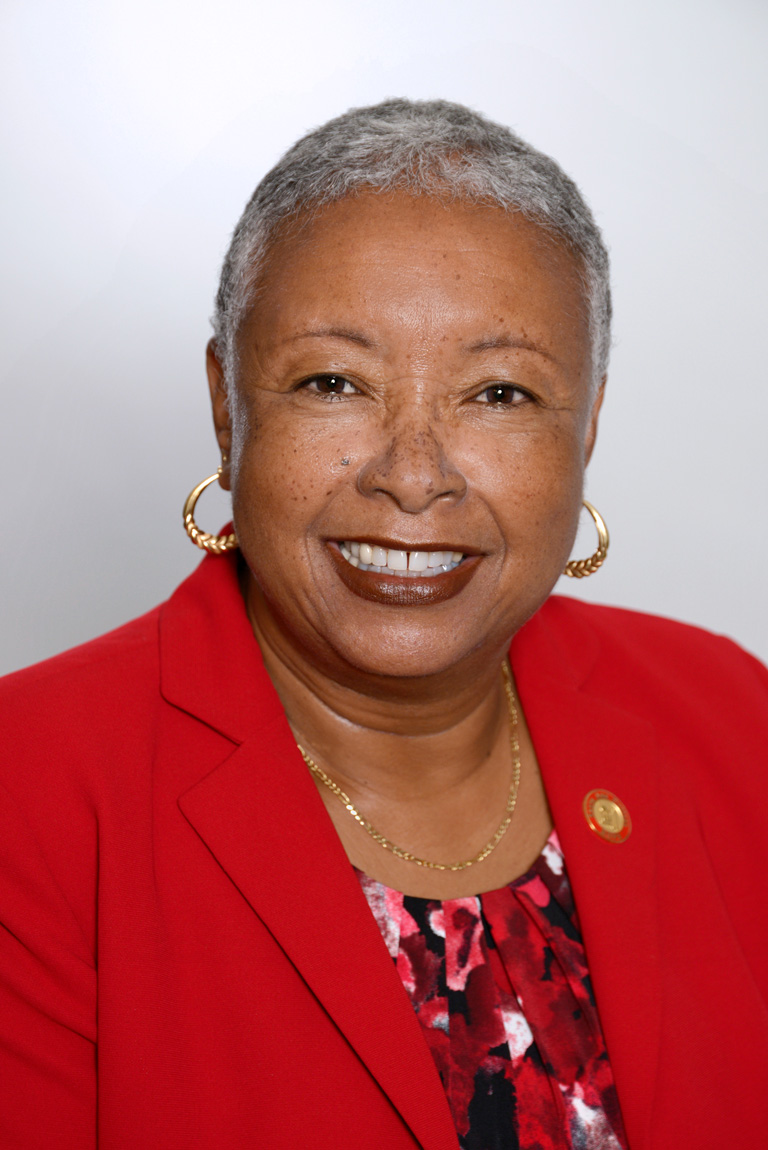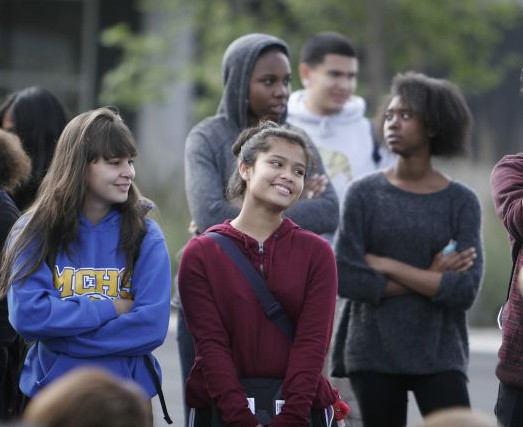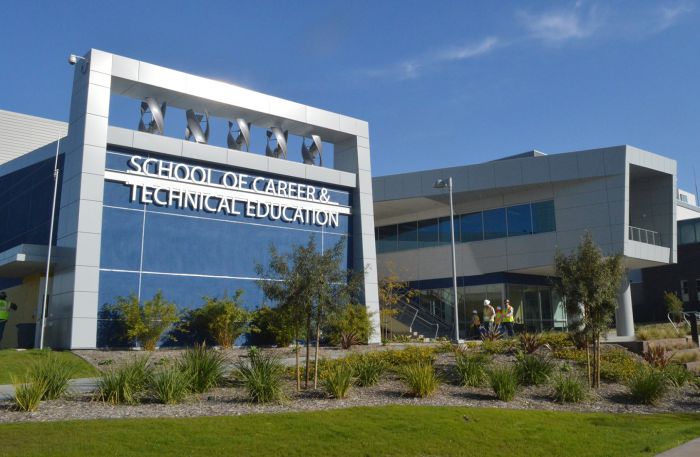
What do employers need? They need people who can communicate, who “understand what they’re doing,” those who can think critically and are “not afraid” to think creatively.
“That’s how companies are moving forward, and that’s what our students need to get there,” said Linda Rose, president of Los Angeles Southwest College (LASC), and a California State University, Dominguez Hills (CSUDH) alumna.
Rose should know. The oldest of eight siblings, she grew up in Compton and didn’t go to college directly after graduating from Centennial High. By the late 1970s and early 1980s, she was supporting herself working for such South Bay companies as Mattel Inc. and the aerospace company TRW (now Northrop Grumman).
It was those years working in the private sector that Rose (’93, M.A., English/ ’91, B.A. Interdisciplinary Studies) discovered she needed a “real” career to better support her two children, and build a more fulfilling life.
“Not in my wildest dreams did I ever imagine that someday I’d be a college president. Back then, I felt I just needed something more for my children, but I couldn’t see anything else that I could do that didn’t require an advanced degree,” said Rose, who sees a lot of value in both a college degree and certificate programs. “At the time, TRW had an educational reimbursement program, which essentially paid for all my tuition. I am very grateful for that, which is why I’m always looking for connections in the private sector. They want you to have a college degree, but what they really want is to make sure our students can read, write, and compute.”
Rose earned her associates degree at West Los Angeles College, but the first college course she ever took was at LASC.
“This is where I came to get a taste of what college would be like. Now as president, I have been given the opportunity to give something back,” said Rose, “It’s great to be able to be here and to help continue in the growth of the college.”
After graduating from West LA College, Rose transferred to CSUDH for its Program for Adult College Education, which offers a bachelor’s degree in Interdisciplinary Studies. With a bachelor’s degree in hand, Rose continued her education at CSUDH, achieving her master’s in English, and certification in rhetoric and composition.
Rose went on to teach in the Department of English at Cerritos College for 11 years, followed by six years as that college’s instructional dean. While working at Cerritos College she completed her doctorate of education from the University of California, Los Angeles, which opened the door for her to seek the vice president of academic affairs at Santa Ana College, a position she held for three years prior to becoming president at LASC.

Rose believes all students must find their own paths to fulfillment in the workforce, much like she created her career in education. She embraces wholeheartedly LASC’s motto of “Self-Empowerment Starts Here,” which she says fits well with her realist’s view of the power of higher education.
“Students must empower themselves if they want to learn new skills, and hold themselves accountable for their learning, as we hold ourselves accountable for what’s going on in their classrooms and in the operations here on campus,” said Rose. “We work so hard to convey that message to them.”
Rose said that for students to be successful they need to fully understand their needs–that only then can they “plan and set the right goals” to have productive lives. She also believes such planning is particularly critical for LASC’s student body, which is approximately 56 percent African-American, 35 percent Latino, and 69 percent female overall.
“Not everyone who attends LASC is going to want to transfer to a four-year university, but in today’s work environment most students will need some education or training beyond the high school level to earn more than just a living wage and be able to support a family,” she said. “That’s why self-empowerment is so critical.”
Like CSUDH, the location of LASC is a direct result of the 1965 Watts Rebellion. The college was built close to the communities impacted by the rebellion, which pushed the longstanding grievances and inequalities people of color had endured in Watts and the region into the spotlight.
“Our mission is to ensure that our residents have access to quality higher education that is accessible,” said Rose. “Like Cal State Dominguez Hills, we have freeways close by. The founders wanted to make sure local students didn’t have to drive far to get to a college campus, that they could just get on a bus, or even ride a bike to get here. Our mission hasn’t changed to this day–it’s a mission of empowerment.”
Moving Forward
Rose has heard that it typically takes two to three years to feel “settled in” as college president. Now in her second year, she has reached a certain “comfort level,” but she bases how she “feels” as president on the college’s progress in moving forward, both physically and through academic changes, such as initiatives geared toward student success.
 When Rose arrived, LASC was at the tail end of a campus-wide renovation project. A five-story building still needed to be demolished, and the administration building was being renovated, and The School of Career Technical Education complex, which is new construction, was being completed.
When Rose arrived, LASC was at the tail end of a campus-wide renovation project. A five-story building still needed to be demolished, and the administration building was being renovated, and The School of Career Technical Education complex, which is new construction, was being completed.
“We have excellent services as it relates to our academic support for students. I’m really proud of our newly-renovated library,” she said. “We’re working as hard as we can to ensure that that the library truly is a reflection of what our students need, a place where they can build their intellectual muscle.”
The entire California Community College system has been going through significant academic transitions, according to Rose, particularly when it comes to preparing students to transfer to CSU and University of California (UC) campuses,
“We have been working on developing smoother transfer pathways to four-year universities that align our curriculum with the major steps to get in. We hope this will increase our transfer rate as we build out this initiative further at LASC,” said Rose “We are seeing things come to fruition, like our transfer program, and we have more associate degree transfer programs than when I arrived. We still need to make some improvements in our planning and processes, but I am feeling more of a sense of ‘Okay, I’m really starting to settle in here.’”